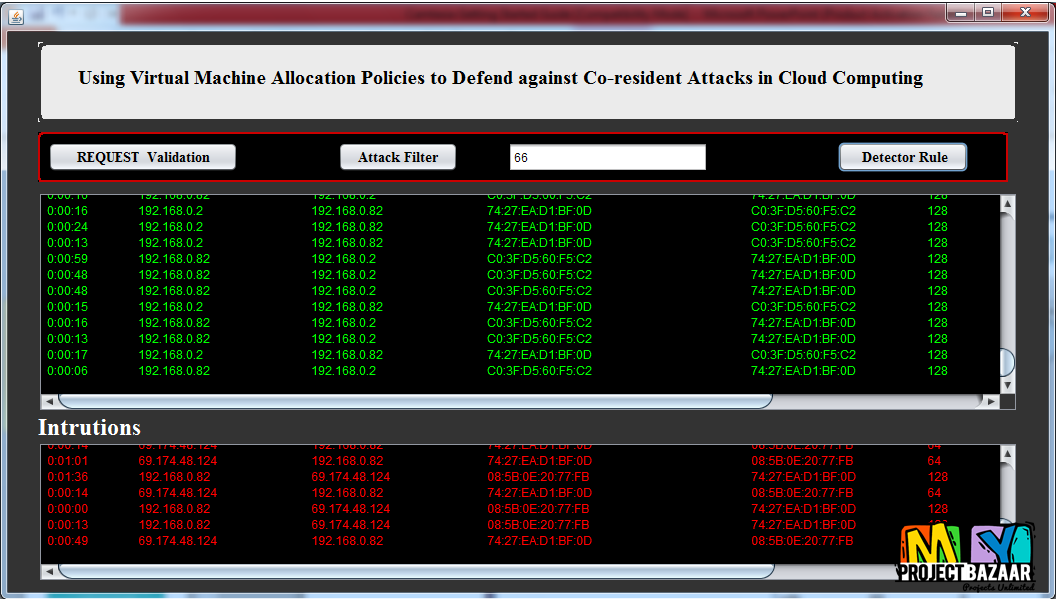
Using Virtual Machine Allocation Policies to Defend against Co-resident Attacks in Cloud Computing
Product Description
Using Virtual Machine Allocation Policies to
Defend against Co-resident Attacks in Cloud Computing
Abstract— Using Virtual Machine Allocation Policies to Defend against Co-resident Attacks in Cloud Computing. Cloud computing enables users to consume various < Final Year Projects 2016 > IT resources in an on-demand manner, and with low management overhead. However, customers can face new security risks when they use loud computing platforms. We focus on one such threat−the co-resident attack, where malicious users build side channels and extract private information from virtual machines co-located on the same server. Previous works mainly attempt to address the problem by eliminating side channels. However, most of these methods are not suitable for immediate deployment due to the required modifications to current cloud platforms. We choose to solve the problem from a different perspective, by studying how to improve the virtual machine allocation policy, so that it is difficult for attackers to co-locate with their targets. Specifically, we (1) define security metrics for assessing the attack; (2) model these metrics, and compare the difficulty of achieving co-residence under three commonly used policies; (3) design a new policy that not only mitigates the threat of attack, but also satisfies the requirements for workload balance and low power consumption; and (4) implement, test, and prove the effectiveness of the policy on the popular open-source platform OpenStack.
Including Packages
Our Specialization
Support Service
Statistical Report

satisfied customers
3,589
Freelance projects
983
sales on Site
11,021
developers
175+Additional Information
| Domains | |
|---|---|
| Programming Language |


















